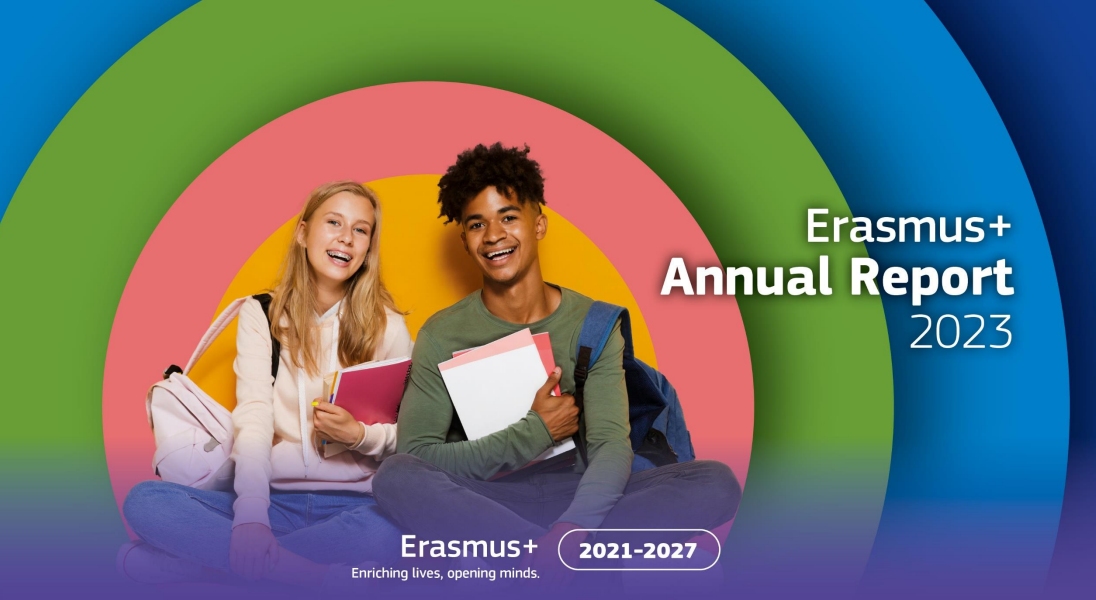
The Erasmus+ 2023 Annual Report highlights the program’s achievements in lifelong learning and cooperation, focusing on social inclusion, green and digital transitions, and the promotion of European values. With a total budget of over €4.5 billion (+12.5% compared to 2022), the program funded nearly 32,000 projects, engaged 84,500 organizations, and provided opportunities for over 1.3 million students, learners, teachers, trainers, youth workers, and other professionals. Since its launch in 1987, Erasmus+ has reached 15.1 million people, solidifying its position as one of the EU’s flagship initiatives.
Inclusion and Diversity
In 2023, Erasmus+ prioritized social inclusion, reaching 200,000 participants from disadvantaged backgrounds, including migrants, individuals with disabilities, and EU citizens living in remote areas or facing socioeconomic challenges. The program became more accessible to small organizations and ensured equal opportunities and high-quality projects. This commitment underscores Erasmus+ as a leader in promoting equity in education and training.
Green Transition and Sustainability
Aligned with the EU’s environmental priorities, 23% of Erasmus+ participants opted for low-emission transport, such as trains, buses, or carpooling, for most of their program-related travel. This initiative helped reduce the environmental impact of mobility actions, showcasing Erasmus+’s dedication to a sustainable green transition.
Digitalization and Educational Transformation
Supported by the Digital Education Action Plan, Erasmus+ fostered the digital transformation of education systems. In 2023, 31,890 participants engaged in mobility and training activities to develop digital skills, equipping young people and professionals to tackle the challenges of the digital era and enhancing the EU’s global competitiveness.
Democratic Participation and European Values
A key aspect of Erasmus+ is its support for democracy and European values. In 2023, 1,460 projects were awarded €390.6 million to promote democratic participation and strengthen European identity. These initiatives contributed to building a more cohesive and participatory European Union.
Response to the War in Ukraine
In response to Russia’s war of aggression, Erasmus+ supported Ukrainian refugees by facilitating their integration into EU education systems. The program also funded the printing and delivery of 1.5 million textbooks for Ukrainian students, highlighting its critical role in supporting communities affected by crises.
DiscoverEU
The DiscoverEU initiative, integrated into Erasmus+ in 2021, enabled thousands of 18-year-olds to travel and explore Europe’s cultural diversity. In 2023, over 289,000 young people applied for approximately 71,642 travel passes, reflecting the strong interest in this opportunity.
Budget and Future Outlook
With a total budget of €26.2 billion for 2021-2027, Erasmus+ remains a cornerstone of EU policies for education, training, youth, and sports. The 2025 call for proposals, published on November 19, 2024, reaffirms the EU’s commitment to investing in innovative projects that address contemporary challenges and foster inclusive, sustainable growth.
Erasmus+ is more than just an educational program—it is a platform for cooperation, innovation, and building a more united and resilient Europe.
